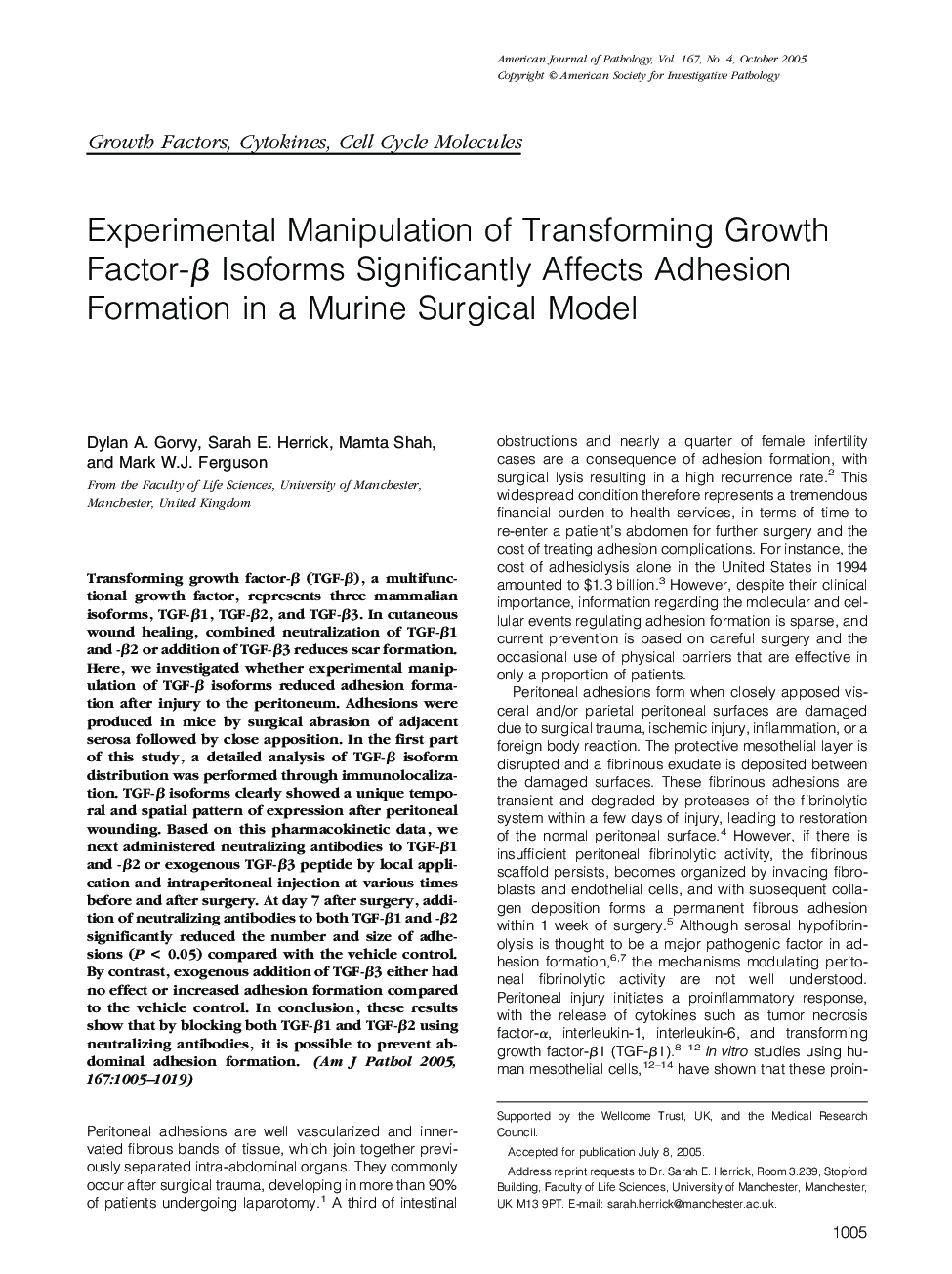| Article ID | Journal | Published Year | Pages | File Type |
|---|---|---|---|---|
| 9943236 | The American Journal of Pathology | 2005 | 15 Pages |
Abstract
Transforming growth factor-β (TGF-β), a multifunctional growth factor, represents three mammalian isoforms, TGF-β1, TGF-β2, and TGF-β3. In cutaneous wound healing, combined neutralization of TGF-β1 and -β2 or addition of TGF-β3 reduces scar formation. Here, we investigated whether experimental manipulation of TGF-β isoforms reduced adhesion formation after injury to the peritoneum. Adhesions were produced in mice by surgical abrasion of adjacent serosa followed by close apposition. In the first part of this study, a detailed analysis of TGF-β isoform distribution was performed through immunolocalization. TGF-β isoforms clearly showed a unique temporal and spatial pattern of expression after peritoneal wounding. Based on this pharmacokinetic data, we next administered neutralizing antibodies to TGF-β1 and -β2 or exogenous TGF-β3 peptide by local application and intraperitoneal injection at various times before and after surgery. At day 7 after surgery, addition of neutralizing antibodies to both TGF-β1 and -β2 significantly reduced the number and size of adhesions (P < 0.05) compared with the vehicle control. By contrast, exogenous addition of TGF-β3 either had no effect or increased adhesion formation compared to the vehicle control. In conclusion, these results show that by blocking both TGF-β1 and TGF-β2 using neutralizing antibodies, it is possible to prevent abdominal adhesion formation.
Related Topics
Health Sciences
Medicine and Dentistry
Cardiology and Cardiovascular Medicine
Authors
Dylan A. Gorvy, Sarah E. Herrick, Mamta Shah, Mark W.J. Ferguson,
